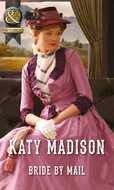Kitap dosya olarak indirilemez ancak uygulamamız üzerinden veya online olarak web sitemizden okunabilir.
Kitabı oku: «The Passionate Pilgrim», sayfa 2
“Your feelings do not concern me—we are speaking here of families, mistress, not of one person only. Families who have a right to be protected by law. What did your late Canterbury husband know or care of Yorkshire estates hundreds of miles away to the north except for the rents that poured in each year? What do you know of them? He couldn’t even look after you properly, could he?”
“You will leave my late husband out of this discussion, if you please. Had things gone differently, we would not now be having this conversation. You vented your malice by confiscating my property—”
“My property! My late father’s. And I had every right to reclaim it. Who else would look after those families if I didn’t? Eh?”
“I’ve told you. But you timed your vindictiveness well, didn’t you, Sir Rhyan? You waited until I was a widow—”
“Nine months, I waited.”
“—and had lost the child I so desperately wanted,” she panted, willing the tears to stay away, “and then you—”
“I didn’t know of that, then. It would have waited.”
“—sent lawyers to me. I suppose you thought I’d inherited so much from my father and husbands that I could afford to lose a little. Is that what you thought, sir? Did you care about my distress?”
“Do you care about the distress suffered by those families at the hands of your so-called stewards, who knew damn well there’s no one to come and see what they got up to? The frauds? The thefts? The unjust punishments? The abuses? The taking of daughters?”
“What?”
“Yes, all of that, and more. It’s next to my land, woman, so I know what’s been going on. Is it surprising I wanted to get it back, to give those people some normality in their miserable lives? It’s good land going to waste with poor management, not enough oxen, ploughs, hardly a roof on the church. And you here, sitting around with your lovers—”
His quick reaction caused Merielle’s arm to swing blindly through space, missing his head entirely and slewing her round with the effort. To steady herself, she braced her arms on the table and glared at him through narrowed eyes ready to kill with one piercing stare. “Hypocrite!” she spat. “It’s all right for men, then, is it? I’ll have you know, sir, that I can administer all my property in York, Lincoln and Canterbury, run a household and a tapestry-weaving business and still have energy left over for lovers whenever I feel like it. And if you choose to tell that to Sir Adam to see if you can put him off the idea of taking me to wife, well, don’t trouble yourself: I can do it much more effectively. With embellishments. If anyone is going to deter my late sister’s husband, sir, it need not be you, I thank you.”
“Even so, lady, that is what I shall do.”
She gasped and stood upright. “Ah, yes, of course. Just to make sure. You are his heir, are you not? And it wouldn’t do for me to get in the way of your inheritance, would it? Think of the dower he might tie up which you’d not be able to reach until my death. I see you’ve thought of that.”
Unmoved, he stood and let his eyes rove slowly from the wreath of pennyroyal still on her abundant black hair, over her full breasts and narrow waist, the swell of her hips under the green woollen kirtle, then back to her eyes, blazing with anger. “I’ve remembered everything, lady, as you say. But let me remind you again, lest you forget. You will not marry anyone without my permission. Not even my uncle.”
“And what could you do about it if I did, pray? Apart from reclaiming my property once more, what could you do? Unwed us?”
“Tch, tch!” He shook his head, slowly. “Do you mean to tell me, Mistress Merielle St Martin, that you would leap into your brother-in-law’s bed, another middle-aged and wealthy admirer, just to spite me? I’m flattered that anyone should go to so much trouble, but I’m sure you must have a good reason.”
“Then you are even more arrogant than I thought, sir. The only reason I could have for spending the rest of my life with Sir Adam Bedesbury would be to fulfil my responsibilities to my baby niece, my sister’s child. Is that a good enough reason, do you think? If the child were related to you, Sir Rhyan, would you think of doing the same?”
“Alas, lady, the degree of kinship is too close. I would not be allowed to marry my uncle. But in any case, I’ve always found it too extreme for my taste to suppose that one must needs marry the parent of every motherless child, related or otherwise. Responsibility is one thing, but your plan is as irrational as Master Bonard’s one eye. I suggest you examine your reason more closely.”
Reluctantly, Merielle saw his argument and was annoyed that he had been the one to advance it. “I have no plan that you speak of,” she snapped. “My point is that I have a good enough reason and that, if I choose, there is nothing you could do to prevent me, Sir Rhyan.”
He looked surprised at that. “Ah, forgive me. I had thought you were quite determined, with your talk of dower and such. In that case, Sir Adam will have the pleasure of trying to persuade you while you will have to exercise great restraint not to accept him. It should be most entertaining. And I can stop you, lady. Don’t doubt it.”
“Leave my house, sir, before I have you thrown out!”
But even that was too late, for he had already made his bow as he spoke and was turning to go.
Her own exit was meant to show him how he deserved no courtesy, but his hearty bellow of laughter followed her out of the hall and beyond, where she snatched the crown of green leaves off her head and hurled it at poor Bonard who had appeared with condolences at the ready.
“A fat lot of good that thing did!” she yelped, massaging her bruised wrist at last. “And why is Allene not here when I need her?”
Knowing that for her mistress to run through her vocabulary of insults would not improve her temper, the ever-practical Allene placed a beaker of hippocras between Merielle’s shaking hands and nudged it upwards, hoping thereby to bring the flow of invective to a halt. She was tempted to revert to the gentle clucking noises of the nursery to calm Merielle’s anger, but Allene’s experience as her nurse told her that this was neither the time nor the place to attempt pacification.
To Merielle’s accusing enquiry about where she’d been, Allene retorted with commendable composure, “Upstairs, packing. Where else would I be? If I’d known your guest was going to march in and out as if he owned the place, I’d have made it a mite more difficult for him, believe me.”
“Guest? That rat-faced piece of manure?”
“Ugly, was he? Now, my memory’s not all that bad, but I seem to remember—”
“Revolting! Should have been smothered at birth. And I’ll be damned if I’ll ride all the way to Winchester in that monster’s company.”
Allene’s expression registered no shock; her double chins did not quiver, her kindly blue eyes did not widen. But the outrageous assertion that the unwelcome guest was ill featured made her look sharply at the beautiful woman whose slender fingers clenched tightly around the vessel, tipping its contents this way and that to catch the reflections on its surface. Allene had been Merielle’s complete family during the last few years and knew better than anyone every mood, every inflection of the voice, every look and every thought behind it. She had been present at Merielle’s birth and at every moment since, and the memory she spoke of was indeed not as bad as all that. So intact was it that she could pinpoint exactly the last occasion when Merielle had reacted so harshly to anyone. Then, at her sister’s wedding here in Canterbury when Merielle had been inescapably faced with the same man, her private response had been just as extravagantly savage and out of all proportion, Allene believed, to a man’s right to do the best he could with his own land.
With all the property from Merielle’s father and two husbands to bring in revenues enough to satisfy an army, Allene had never been able to understand why the thought of allowing some of it to return to its Yorkshire owner should be so very unthinkable. Some women might have been glad to shed the responsibility, especially since officials had to be paid to administer the properties even during the leanest years after the pestilence. Since that dreadful time, it was now becoming more and more difficult to find men to do the work efficiently, so why all the fuss about surrendering it?
Allene would have asked about the man’s particular offence this time, but Merielle’s next observation forestalled her, astounding the placid nurse by its immoderation. “He’s that child’s father. You know that, don’t you?”
Allene could not allow this to pass. Her voice sharpened in rebuke. “For pity’s sake, child! You cannot say so!”
Taking the beaker from Merielle’s hands, she drew her towards a stool whose top was padded with a tapestry carpet of flowers. “You cannot say that! You have no proof and you are speaking ill of your late sister, also. Now put the foolish thought from your head and replace it with something more charitable. Did Archbishop Islip’s Easter message have no meaning for you? You may not like your brother-in-law’s nephew, but you cannot lay a crime like that at his door.”
“Yes, I can, Allene. Do you remember the child’s hair?”
“Of course I do.”
“Well?”
“It’s dark. Look, plenty of infants start off dark and go lighter. Some do the opposite. Your hair was more the colour of new copper when you were born. Imagine what your poor papa would have made of that, if he’d had a mind to. You can’t pin Laurel’s child on the man by that alone, Merielle.”
“Her eyes are blue.”
“So are all new-born infants; you know that, surely? And why are you so keen to make him the father? Did Laurel ever say as much?”
“Hah!” Merielle stood, turning away from Allene’s good counsel. “You know how keen she was on him. I could have warned her off him, told her how he retaliated after I married Philippe, wanting to take the land back into his keeping. But she’d not have listened to a word against him, would she? Come, this talk is pointless. I have to find a way out of this situation.”
“You don’t have to go to Winchester, pet. Send a message instead to say that you’ve decided against it.”
Admit defeat and hear his laughter ringing in her ears? That was the last thing Merielle would do. “I do have to go, Allene. I need to hold that child again.”
“There are two whole days between now and Monday.”
“So, are we packed?”
“Of course.”
“Then we go tomorrow instead of waiting.”
“Alone?” The nurse pretended a soupçon of dismay.
“Hardly. There’ll be plenty of others going in the same direction.”
“Then why not find out from the guestmaster at St Augustine’s if any of his guests will be departing tomorrow and at what time? Then we’ll be sure of travelling in decent company. They’ll probably call here on the way to the Westgate. D’ye want me to see to it?”
“Aye, send one of the lads in livery so he doesn’t get ignored.”
“It’s not the ignoring that’ll be a problem, but how to get back through the city gate after sunset. Could you write a note?”
“Yes. Where’s that…that creature staying, I wonder?”
If Merielle had asked where that creature and his uncle had stayed last time they were in Canterbury for her sister’s wedding, Allene might have resorted to a diplomatic lie. But she had not, and when the messenger returned some time later to say that the guestmaster would be happy to direct a small escort of returning guests towards Mistress St Martin’s house on Palace Street early next morning, Allene felt that her suggestion had been an inspired one.
Chapter Two
It was one thing, Merielle muttered, to be allowed to make one’s own decisions, but to be pushed into a plan of action by another did not conform to the portrait of independence she had striven so hard to present to the world since her latest widowhood. Concealing her annoyance in a ferment of activity, she managed to make it appear as if the only factor to influence her unplanned haste was that, by travelling on a Saturday, she would be sure of a day’s rest at the abbey guesthouse on the Sabbath before the rush of Monday-morning pilgrims from Canterbury. And in trying to convince herself that all was in her favour, she managed to cloud the image of the ogre—her words—who had in fact precipitated the change.
Bonard of Lincoln was not so easy to convince of the rightness of the plan. He turned the red scarf over and over in his hands. “I would not have removed it had it not been for their insistence on my being able to protect you better, mistress,” he said. “Now I see that my gesture was all in vain. I may as well have ignored them.”
The illogicality of this did not escape Merielle, but she handed him one of the goblets of wine and prepared her mollifying words. “Dear Bonard, you are sadly mistaken. You are the only one of the household with enough authority to leave at such short notice and the only one I can trust to keep things going. There’s the new consignment of wools to be checked; I would have done that tomorrow morning. Then there are two more Flemings to interview first thing, and I can leave that to no one but you.”
“The tapestry-master can see them.”
“He’s a Fleming himself, isn’t he? He’d take them on even if they were one-eyed and fingerless.” She regretted the comparison, but it was too late to withdraw it. “I need an independent master who knows the business. You must be here. And besides that…” she took his arm and drew him down beside her on the wooden bench, “…I need you to explain to Master Gervase what’s happened. Go round to his lodgings tomorrow, Bonard. Will you do that for me?” She saw the shadow of pain that passed across his eyes, but ignored it. She had seen it before.
“I’d rather wait till he appears on Sunday, mistress. He must take the inconvenience like the rest of us. D’ye want me to tell him about your dispute with Sir Rhyan, too?” The tone of petulance lingered into his question, making Merielle wonder whether she was hearing sarcasm or mere pique.
She frowned. “He knows, doesn’t he? He’s the one who got me an audience with the king, remember.”
“I meant this evening’s dispute.”
“No, better not.”
His cloud lifted. “So you’ll send word when you’re ready to return?”
Relieved, she prodded him into a lighter mood. “You’re sure I’ll return, Bonard?”
He smoothed the red scarf over his bony knees. “I’m more sure of that than of anything, Mistress Merielle,” he said. “Your unwelcome guest was flippant about not being able to marry his uncle, but I wondered if he was not also trying to tell you that your own degree of kinship is outside the canon law, too.”
“What?”
Without looking at her, Bonard continued, “A man may not marry his wife’s sister, nor may a woman marry her sister’s husband. Was Sir Adam aware of that when he suggested that you might consider taking your late sister’s place? Is that what he was suggesting, mistress?” Slowly, he turned his head, watching his words register in her eyes. He might have known she would challenge them.
“But people do. Men marry their brother’s widows, don’t they?”
“To keep property in the family, they do, with permission. You’d hardly qualify for that, would you?”
“So you’re saying that I’ve misunderstood the situation?”
“I don’t know exactly what was said, but such things are easy enough to misunderstand. Think. What did he say, exactly? He must know the law as well as anyone.”
“Then why didn’t I?”
“Presumably because you interpreted it the way you wanted to at the time. Men don’t always make themselves plain, do they, when it’s in their interests to be misunderstood?”
“Don’t they?”
“No, mistress, they don’t.”
“So you believe Sir Adam deliberately misled me?”
“To lure you to Winchester? Of course I do. You’d not go so readily if he’d asked you openly to be his mistress, would you? He must know full well that you’d not be allowed to marry, but men like that have to explore every possibility. How d’ye think he’s risen so fast in the king’s favour? By seeking every opportunity and grabbing at it, that’s how. He’s an ambitious man.”
“And how exactly is having a mistress going to advance him?”
Bonard sighed gently and plucked the red scarf away out of sight. “I may be a romantic,” he said, “but I’m not so blind that I cannot see the way men look at you.” He watched her large eyes withdraw beneath deep crescent lids and a thick fringe of black lashes, then waited until they reappeared, veiled with unease. “He can see your interest in the child, but if all he wanted was a mother for it, he’d have married again long before now.”
“It was less than a year ago, Bonard.”
“That’s nothing when a man needs a wife. But it’s you he wants, and he’s hoping that you’ll believe it’s marriage he’s offering. Once you’re there, he’ll try to persuade you. Forewarned is forearmed, mistress.”
“Oh, Bonard. Is that what you believe, truly?”
“Yes, it is. A mother for his infant and you in his bed.”
She flinched at his plain speaking. This was a Bonard she had not encountered before. Even so, there was something he did not know. “But my sister implied that Sir Adam was not…not like that.”
Master Bonard straightened, recognising the gist. “Yes, well, you know what Mistress Laurel was like when she wanted to make a point, don’t you? Unrestrained, could we say?”
“A family trait, I fear.”
He did not contradict her. “Sir Adam was not the man for her, was he? Too set in his ways and too interested in her sister. Hardly likely to qualify him for much praise, was it? Could she have said that to put you off, d’ye think? She certainly did her best to make him jealous, didn’t she?”
“Flirting with that man!” Her voice chilled at the memory.
“It takes two,” he said, quietly. “He’s severe, mistress, but at least he’s honest. Unlike some others we could name.” The quiet comment slipped through the net, and his reference to Gervase of Caen was lost in the previous one, which he extended. “And from the sound of things he may well understand what his uncle’s intentions are, and is trying to protect you.”
“Oh, Bonard!” Merielle looked away with impatience. “That’s inconceivable. The only reason he has for preventing a liaison between me and his uncle is because it would put his inheritance in jeopardy. My personal protection is the last thing on his mind.”
“Perhaps your opinion of him is too harsh, mistress. He was not responsible for what happened afterwards, remember.” His voice dropped, although the servants had long since ceased their arm-laden excursions across the hall and were now seeking dim corners in which to lay their heads for the night. “And however much you dislike him, he must never know that there was more to it than a straightforward fine. If you had not gone to seek the king’s aid in the matter…”
“If that man had kept his nose out of my affairs, Bonard, I would not have needed the king’s aid in the first place. And if I’d known what the price would be, I’d never have gone there that day. Even you could not protect me from that, could you?” She had not meant it to sound like censure, but the tired and angry words had a way of emerging point first. “I’m sorry, my dear friend. You deserve no reprimand. There was nothing you could have done, I know. Nor could I have done without you, that day.”
He had done his best, such as it was, but even the faithful Bonard could not insist on being present at her interview with the king at Canterbury, if the king did not wish it. What had happened then behind the closed doors in the archbishop’s palace where the king was staying had had a direct bearing on the fine which was paid to Sir Rhyan Lombard for Merielle’s defiance of the contract between their late fathers. Afterwards, Merielle had explained nothing, nor had she needed to. The king’s reputation was well known and Master Bonard, romantic idealist, was no innocent in the ways of great men.
“I can make up for it a little,” he whispered, “if you allow me to accompany you to Winchester. No more Latin verses?”
Again, his words were lost on her, brushed aside in her quick, irritable dismissal of the incident. She stood, and Bonard recognised the futility of repeating his offer.
Long past midnight, the relaxation which the longed-for bath was meant to induce was effectively displaced by new problems that could be shared only in part by those she trusted most. In a cloud of steam, she wondered whether it was marriage or widowhood that made problems worse and decided that, but for men, life would have been simple. Regrets crowded after the dilemma of Sir Adam and his intentions; she should never have agreed to go, even to see her infant niece, to hold her, to nuzzle her peachy cheeks. Beneath the foamy waterline, she passed her hands over her womb, sliding them upwards to comfort the sudden ache in her breasts, remembering with a gasp of longing the tragedies contained there, the last of which she had brought upon herself.
The warm summer days of 1356 had already begun to lengthen by the time the news had reached her of Philippe’s sudden death, weeks earlier. From the south, the winds had blown gently, and Sicily was half a world away and what had Philippe been doing in Palermo on his way to Jerusalem? Like many another, it was a question never to be answered in the blank and sickening days that followed. She had not seen the need for him to leave her, nor had she known that the preparations they had made for his temporary absence would now become permanent. Nor had she had time to learn to love him.
“Determined’ had been the best way to describe his wooing, for every time she thought she had seen the last of him in Lincoln, he came back for another try until, finally, she came to look forward to his return; the novel idea of being sought with such constancy found a niche in her lonely existence. He had made Canterbury sound attractive. Their wedding night had been a non-event for which she had no regrets; it was only after supping with friends one evening and drinking rather too much of their fine newly imported Rhenish wine that the two newlyweds came to know each other better than during the previous weeks of celibacy.
Philippe had been good at his work, knew everyone in Canterbury and was well known also by them, and, if he lacked personal authority, his workshop’s reputation made up for that. His business partner, who had died just before their marriage, was not replaced; Philippe’s new wife appeared to be enough for him. And when, after only a few months of marriage, Merielle discovered that she was pregnant, Philippe’s astonishment catapulted him into a pilgrimage, as if thanks offered in the nearby cathedral would not suffice. It was as if they had both been taken unawares by something they had not quite remembered.
Whether from shock or from some other reason, the pregnancy had lasted barely three months, less than a week after the news of Philippe’s death had reached her. Merielle, who had never been truly ill before, thought that her world had collapsed with her beneath it, and, at eighteen, howled for all her dear departed ones and for the infant she had hoped would give her life some purpose. Believing no more in expectancies, only in losses, she was both horrified and frightened by the miscarriage, for the painful contractions were every bit as bad as girlhood scaremongers had said.
Then, during her recovery, had come the icily legal document telling her that her Yorkshire lands were to be repossessed by some grasping and merciless landowner who believed he had more claim to them than she did. A typical case, she believed, of stripping the carcass clean. An excusable exaggeration, in the circumstances.
Her worried expression had been commented upon by a pleasant acquaintance of Philippe’s, one Gervase of Caen, who had listened readily to her angry tale. He had been sympathetic, and helpful, assuring her that there were ways of dealing with scavengers of his sort.
His advice was perfectly timed. “The king,” he had said, leaning elegantly against a half-constructed loom that the carpenter was building. “You must petition the king in cases like this.”
Merielle, who appreciated directness, felt that this was the best advice she had had so far, Philippe’s lawyers having offered scant hope and, seeing little further than the end of her nose at that time, she had allowed Master Gervase to elaborate.
“He’ll be coming to Canterbury in two weeks’ time,” he said, “staying in the archbishop’s palace. You should see the food lists.” He unrolled an imaginary parchment into the air, smiling. “I can arrange an audience for you. He’ll settle the matter.”
In her mind, she had already half-accepted the suggestion, but felt it only polite to protest a little. “But there’ll be dozens of people pestering him, Master Gervase. Isn’t it more usual to leave a petition with one of his clerks?”
His smile had broadened at that and he had taken her elbow to lead her to a stool. “Mistress St Martin,” he said, “when you have friends in the king’s employ, you use them. I can get you a private audience, away from others’ ears, where you can explain the problem to his grace. It won’t be the first time he’s heard of such things happening, you know, to new widows.”
“A fortnight?” She would be fully recovered by then.
“Two weeks. All you have to do is to dress soberly and elegantly, as usual, and I will personally escort you.”
“And Bonard. I must take him.”
“If you will. That will depend on his grace.”
They had taken the letter, too, in Master Bonard’s leather scrip, on a day when darkness had fallen too soon beneath lowered clouds and a heavy drizzle. By the time they had reached the handsome stone porch of the archbishop’s palace in the cathedral precinct, they were almost drenched. Step by dark step, Merielle had followed the curve of the spiral stone staircase from the corner of the porch up to the small anteroom where a fire had been lit within a recess in the wall. She remembered how its stone hood looked like an upturned funnel.
Master Gervase disappeared through a door on the far side of the whitewashed room, and then reappeared some moments later. “His grace will see you alone, Mistress St Martin. No—” he put out a hand for emphasis “—alone, sir, if you please.”
Bonard had looked deeply uncomfortable, but helpless. “It is not seemly,” he protested, in a low voice.
Master Gervase raised his eyebrows. “I cannot argue with his grace if he insists, Master Bonard, can I?”
Through yet another chamber where clerks at tables scratched inky quills across parchments, Merielle was shown into a larger chamber, headily warm after the cold damp outside and glowing with colour from the wood-panelled walls. A fire blazed in one corner and candles made haloes of light that eclipsed whatever was nearest, their sweet scent of beeswax mingling strangely with a lingering aroma of linseed oil.
She had met the king only once before when he had been entertained by the merchants of Lincoln, of whom her first husband had been one. They had given a memorable feast in his honour and lent him vast amounts of money for his French campaigns at the same time and she, as a newly married merchant’s wife, had curtsied and been raised to her feet to meet a pair of admiring eyes. As she was doing on this occasion, only three years later.
His hands beneath hers were firm and warm. He was tall and of athletic build, a man renowned for his valour and skills in battle, his love of jousting, of building schemes, a patron of the arts. He was, she believed, everything one expected of a king. He recalled their meeting as he removed her cloak and, unexpectedly, her damp veil, draping them over a stool near the fire. “There,” he said, “we’ll give them time to dry, shall we?”
He came back to take her hands, rather like an uncle, she thought at the time. “Now, Mistress St Martin, these are sad times, are they not? But if you will sit with me awhile, I will do what I can to help. Your first husband was a staunch supporter of our French cause, you know.”
“Yes, sire. Sadly, he was lost to me soon after your visit to Lincoln.”
“Indeed. And your father also, I believe. You have had more losses than you deserve at your age. What is your age, mistress?”
“I have eighteen years and some four months, sire.”
She did not mention her most recent loss of the infant she had wanted, for she knew that, while she could control tears for Philippe, she could not do the same for the other. She had dressed with care for the occasion, black relieved by edgings of silver inkle-loom braids and silver grey fox fur. With her thick black hair in a nest of plaits around her face, entwined with silver cords and studded discreetly with pearls, the only contrasting colour was the warm apricot skin on her neck, which had now been uncovered. It did not unduly disturb her, for she knew that kings were different from other men in what they were allowed to do. His offer of wine was accepted while he listened attentively to her problem and read the lawyers’ letter.
Basking in the sympathy that followed, she saw her troubles receding already and was thankful that he did not ask her why it was so important for a woman as wealthy as she was to keep hold of these far-flung Yorkshire lands. That would have been difficult to answer except that she resented being fleeced like a helpless sheep, especially at a time like this.
He replenished her goblet with more of the sweet wine and held out his own to make a toast. “To your peace of mind, mistress. Leave it with me, if you will. I’ll have the appropriate fine sent to Sir Rhyan Lombard’s notary. Sir Rhyan is one of Lord Scrope of Bolton’s retainers, you know, both of them the Duke of Lancaster’s men. A good man in battle, so my son tells me. He holds fast, as well he should. A lovely woman should not have to cross swords with a man of his calibre.” He smiled at her and leaned his arm along the table behind her. “Now, tell me of your family. Are they still in York?”








